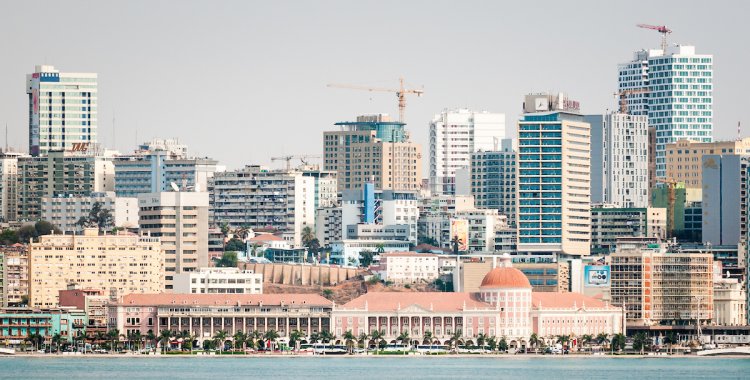Gilberto Capeça was speaking to journalists after a meeting of the Supervision and Coordination Committee of the National System for the Prevention and Combat of Money Laundering and Financing of Terrorism, which served to analyse the evaluation process of Angola that culminated in the inclusion of the country on its "grey list", as the list of countries that are subject to enhanced monitoring by the entity is known.
The announcement was made on 25 October by the president of the FATF, Elisa de Anda Madrazo, who stressed that this process "is not a punitive measure" and aims to "guide countries on the path to improvement".
The FATF explains on its website that when it places a jurisdiction under enhanced monitoring, it means that the country has committed to quickly resolving the strategic deficiencies identified within the agreed deadlines.
The Director General of the UIF, who called a press conference to clarify the consequences of this decision, said that Angola "is not on the grey list", but rather on a "reinforced monitoring list", and that the executive is already implementing 50 percent to 60 percent of the 17 measures provided for in the action plan.
He also stressed that being on this list does not mean financial sanctions for Angola.
"This is not true, our financial system is robust, it is stable, anyone who reads the assessment will see that there is almost nothing there that affects the financial system because in the assessment that was made the financial sector received top marks, it is robust, it continues to function", he highlighted.
Angola is essentially focused on the national system for preventing and combating money laundering, financing of terrorism and the proliferation of weapons of mass destruction, admitting that this area "needs to be worked on more".
The official explained that a technical compliance assessment had previously been carried out to assess whether Angola had a legislative framework for preventing and combating money laundering, terrorist financing and the proliferation of weapons of mass destruction, and that it was also assessed now in terms of effectiveness.
"In other words, the FATF assessed the country based on two components", assessing the effectiveness of the measures taken, although there has not yet been time for them to produce results.
The report that was discussed and approved at the ESAAMLG (Task Force of Senior Experts of the Anti-Money Laundering Group for Eastern and Southern Africa) meeting in Tanzania in 2023 included a set of 87 shortcomings, most of which, according to Gilberto Capeça, were addressed.
"So much so that in the discussion, now in Brussels, of the technical group that discusses progress in the assessment reports with the jurisdictions, Angola made a lot of progress, which is why our report, our action plan, contains only 17 actions" that need to be resolved, he indicated.
The head of the UIF stressed that "what guarantees effectiveness is technical compliance" and that the law must be implemented to produce results.
"Verifying that these results are produced cannot be done in a short space of time, but over a minimum period of six months", he added, explaining that the laws adopted up until September, the date of the discussion of the report, had been implemented for around two and a half to three months.
"Therefore, the FATF does not consider that they are effective enough to say whether the law is good or not".
He stressed that Angola is "on a reinforced monitoring list", which means that its system for preventing and combating money laundering, terrorism and the proliferation of weapons of mass destruction "needs some improvement", with a two-year action plan.
Gilberto Capeça assured that while this process remains, "no country will be sanctioned" because the FATF considers that "the process is good, but needs some adjustments".
When asked what would happen if the issues were not resolved within two years, he assured that "all countries that were subject to monitoring or enhanced monitoring have resolved the issues".
"We do not need a plan B. The plan we have is sufficient for us to eliminate all the shortcomings", he assured.
The UIF is an independent public entity with the authority to receive, analyse and disseminate information suspected of money laundering, terrorist financing and the proliferation of weapons of mass destruction.







